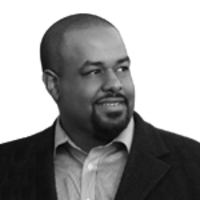With mortars exploding across Israel and Gaza, Christians fleeing Islamist terrorists in Mosul, and other crises erupting around the globe, one thing is clear: the world could use a few more bridge-builders. So it’s good timing that the Obama administration just nominated one of America’s leading relational architects for a pivotal role.
The White House announced yesterday that Rabbi David Saperstein, 66, head of U.S. Reform Judaism's public policy arm, will be the administration’s nominee as Ambassador-at-Large for International Religious Freedom. The “IRF Ambassador,” as the position is known in diplomatic circles, is an important job in American foreign policy: our government’s roving watchdog advocating for persecuted religious minorities worldwide. The position has been vacant for nearly a year, and anxious advocates had hoped that, given the scale of religious crises today, a foreign policy heavyweight would fill this spot.
Well, they got their wish. Saperstein, a lawyer by training, is known as a political powerhouse, someone who has the ears of top White House officials and a fair number of members of Congress as well. (Republican Rep. Frank Wolf of Virginia called Saperstein’s nod “a good nomination” and urged quick Senate confirmation, and Rep. Ted Deutch of Florida, the leading Democrat on the House's Mid-East Subcommittee, tweeted his congratulations). Saperstein helped pass the Religious Freedom Restoration Act in 1993, was founding chair of the Congressionally-chartered U.S. Commission on International Religious Freedom in 1999, and Newsweek named him the country’s most influential rabbi in 2009. As one of the Jewish community's top policy advocates on Capitol Hill, his hands have been in debates from immigration to Obamacare.
ADVERTISEMENT
But what's perhaps most interesting about Saperstein is the depth of support for him from diverse leaders across the American faith spectrum, outside of his own progressive Jewish community. I reached out to clergy and scholars from conservative evangelicals to American Muslims to African-American civil rights leaders, and their comments struck a similar chord.
Joel Hunter, a prominent evangelical leader and senior pastor of the Northland megachurch outside of Orlando, Florida, told me, “David has always been a close friend to the evangelical community … he is one of the most respected religious leaders in the country precisely because of his ability to connect with communities outside of his own.” The sentiment was echoed by the conservative Beckett Fund for Religious Liberty, which applauded Saperstein’s nomination.
Dr. Najeeba Syeed-Miller, a professor at Claremont School of Theology and one of the nation’s leading Muslim scholars, said in an interview that Saperstein “has been a mentor to me … he was a keynote speaker at a Muslim peace-building conference I put together, and helped incubate the ‘shoulder-to-shoulder’ campaign, an interfaith response to discrimination against Muslims. His knowledge of the Muslim community’s challenges, demographics, historical experience and assets are matched by very few people in the United States.”
Otis Moss, Jr., the noted African-American civil rights leader and confidant of Dr. Martin Luther King, Jr., concurred. Moss called the selection “a superb appointment at a critical time,” recalling Saperstein’s membership on the national board of the NAACP. (Saperstein, somewhat unique among rabbis, is a frequent speaker at black churches, preaching with the fire and cadence of a Baptist minister.)
The nomination also speaks to the strength of Melissa Rogers, the administration’s faith-based advisor and head of the Office of Faith-Based and Neighborhood Partnerships (full disclosure: my former role in government). Saperstein and Rogers are close friends and long-time confidants, and the fact that Rogers shepherded him to nomination underscores her position within the White House.
If confirmed, Rabbi Saperstein will have more than his share of work cut out for him. The divide between Jews and Muslims in the Middle East seems almost unbridgeable at the moment, and the plight of Christians in Iraq and elsewhere in the region is approaching genocidal proportions. Not to mention monks in China, Jehovah’s Witnesses in Russia, Jews in increasingly anti-Semitic Europe, and various other threatened groups around the globe. Further, the rabbi will have to navigate a byzantine State Department hierarchy and ensure that the IRF Ambassador role has real authority, rather than being layered under Foggy Bottom’s notorious bureaucracy.
But if Saperstein’s history is any indicator, he’s as prepared as anyone for the task. As Joel Hunter, the evangelical pastor, said, “David has the relational network, the political experience, and the intellectual prowess to make this office effective in expanding religious freedom around the world.”
One can hear other leaders in the diverse American religious community nodding, “amen.”






